We’ve all heard variations of the old expression, “If it seems too good to be true, it probably is.”
Well, recently, we’ve had opportunity to use it again and again, thanks to a shocking “coupon” floating around the internet that fits this description to a T.
The coupon offers a variety of excellent discounts, generally to the well-known supermarket Kroger.
Unfortunately, however, people who click in won’t be getting $60 off their next grocery purchase. Kroger is disavowing the discounts with social media posts reading, “Fake coupon alert!”
Like this email scam that tricked people into giving over their personal info, this con hooks people in with a lure. In this case, a deep discounts coupon.
But instead of getting a week’s worth of nearly free groceries, people who click in get nothing but a whole bunch of trouble.
Read on below to learn how the scam works and what you can do.
[H/T: Snopes]
Thumbnail Photo: Flickr
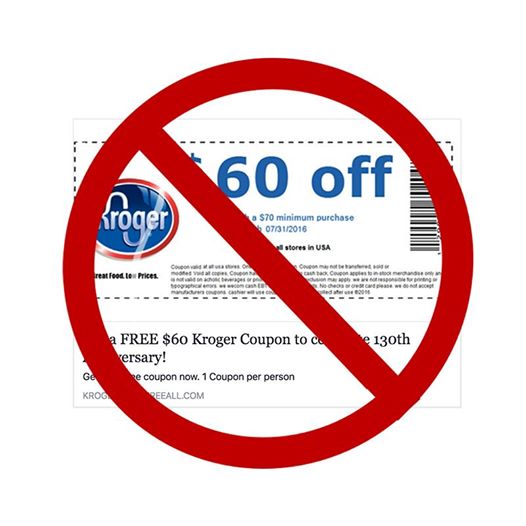
In general, the first clue is a suspiciously deep discount.
Kroger recently took to social media, posting a picture of one of the most notorious counterfeit coupons, with a larger "Banned" symbol through it.
This particular sample offers $60 off any purchase of $70 or more, meaning that for just $10, you could feed a family of five for a week.
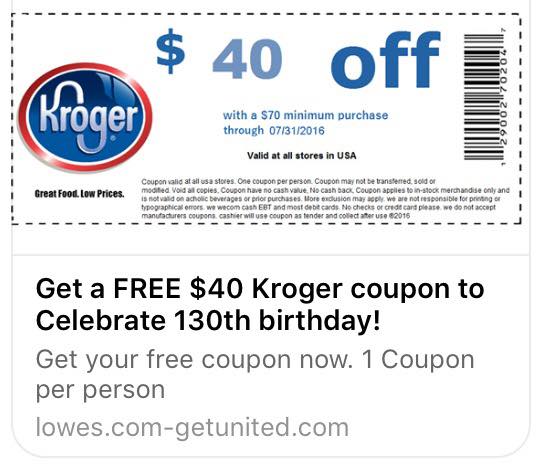
There are a few other denominations to look out for, too.
This nearly identical coupon offers a mere $40 off of a purchase, but also highlights one of the other common features of these scams: The anniversary.
Often, scams excuse giving such good discounts by making it the store's anniversary or birthday sale.
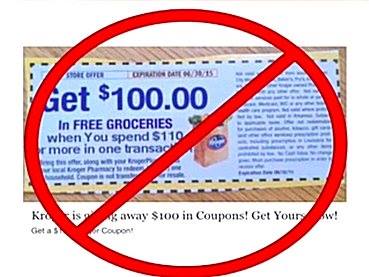
The most egregious example we've seen is probably this $100 coupon, which is an unheard-of discount that might tempt any thrifty shopper.
These coupons also often offer an additional tell sign that can help you distinguish them from real discounts.
Check the web address. If it doesn't start with "www.kroger.com" or end with "kroger.com," it's generally not legitimate.
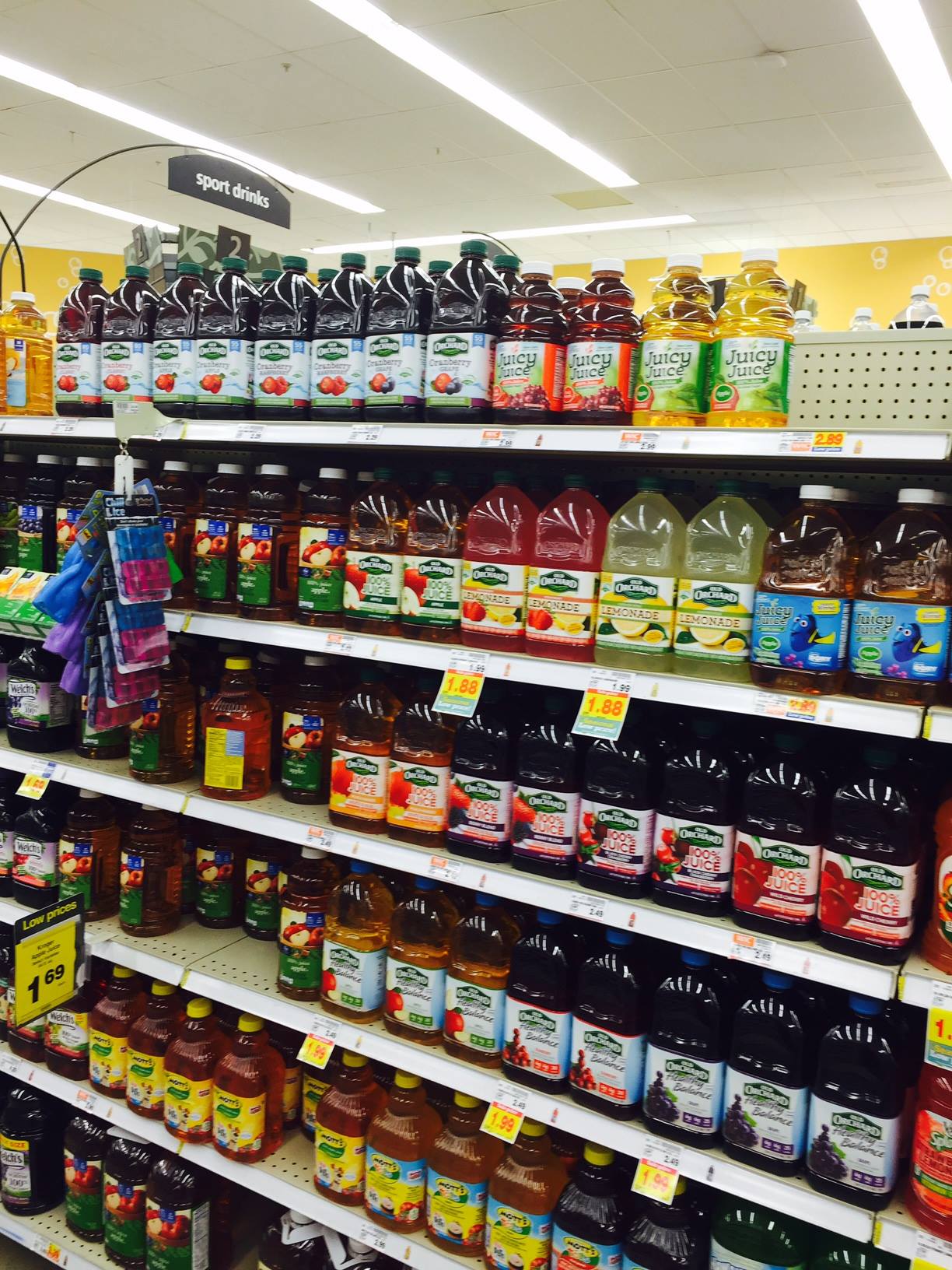
The reason that it gets confusing is that many retail chains, including Kroger, do offer plenty of real discounts online.
Real offers, however, will almost always be spread either via the retailer's official social media pages or email accounts.
If a friend shares a coupon via email or Facebook, double check for signs to make sure it's the real deal.
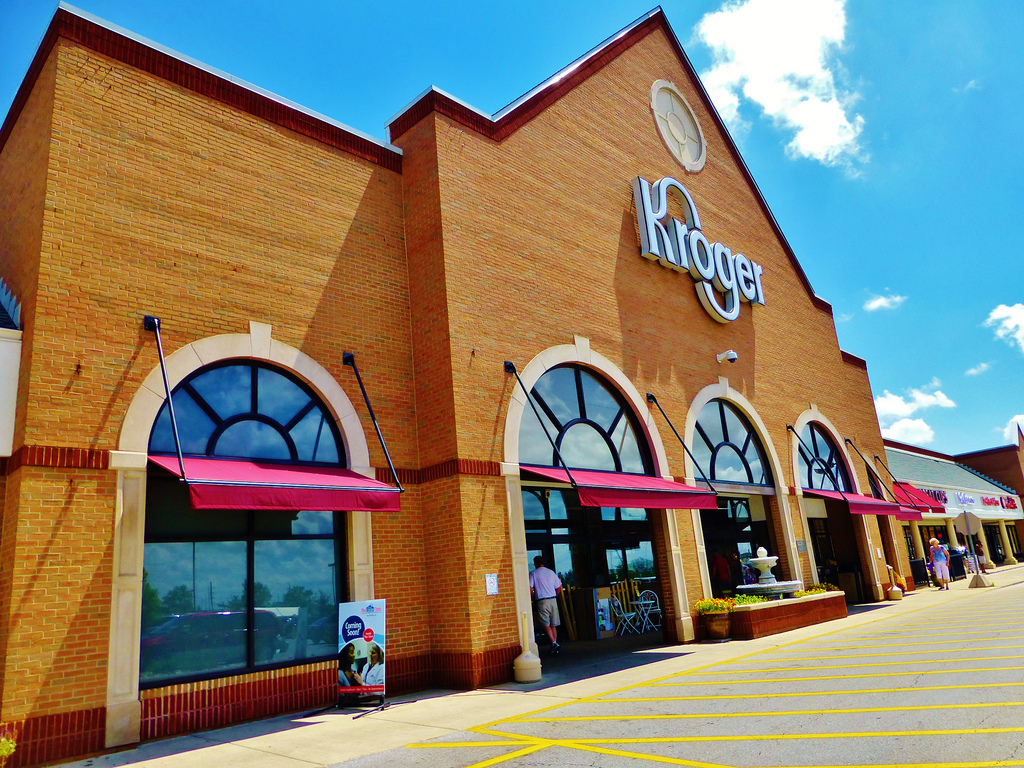
The disadvantage of printing out these coupons for the average shopper is pretty clear. If you try to use it at the store, you'll be disappointed and end up paying full price.
However, the real reason for the scam is more nefarious and has to do with getting your info.
The scammers are trying to collect as many names, addresses, emails, and phone numbers as possible.
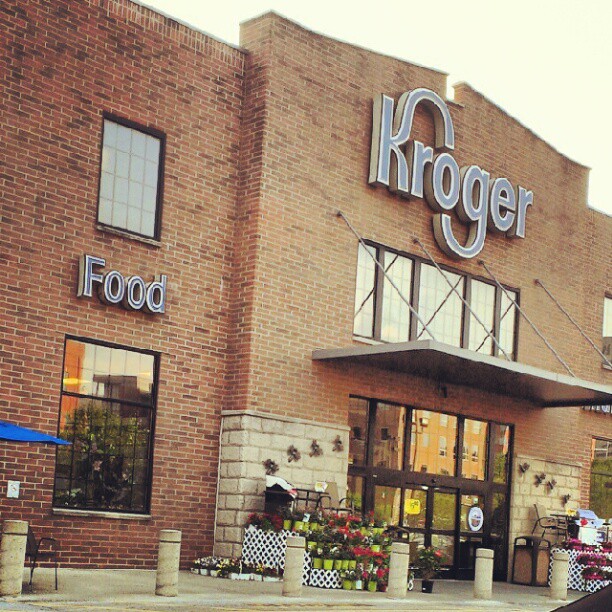
They do this by prompting you through page after page of forms in order to collect the coupon, asking you to fill out all sorts of information to redeem your $60.
Before you get to the end, they'll also prompt you to purchase add-ons.
These add-ons will appear to offer great deal on subscription services and other products, but will actually just take your money without providing the add-on.
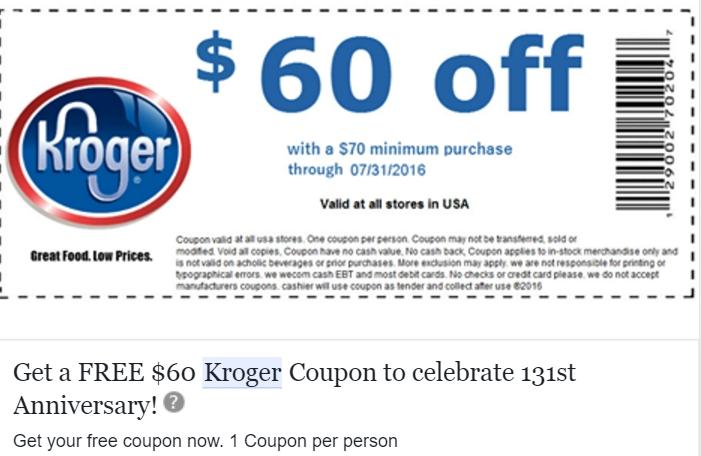
The final piece of the scam is to trick users into spreading it to friends.
They're told they'll receive the coupon in 24 hours, and in the meantime, let their friends know about the great deal!
So if you see one of these in your email or on Facebook, make sure you clue your friends in immediately, and SHARE these tips for spotting the scam before it strikes!




